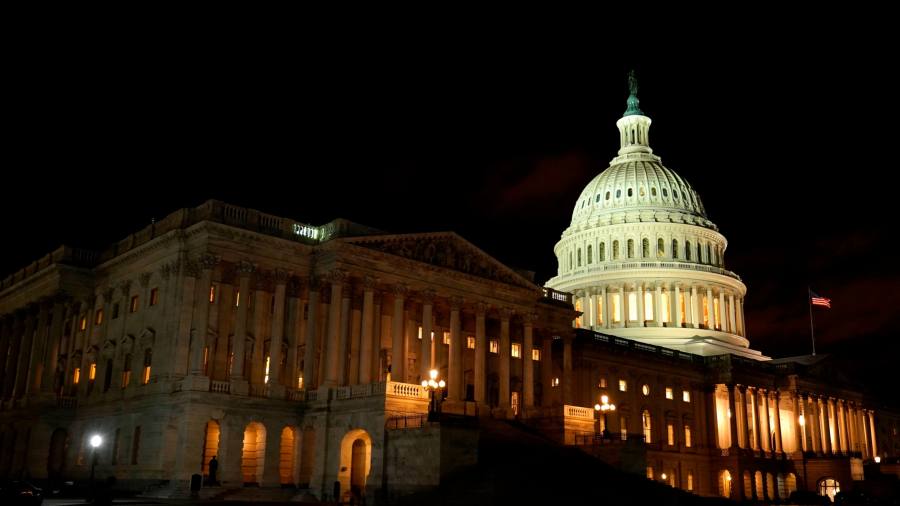Janet Yellen has warned Congress that the US was “highly likely” to run out of money to pay all its bills as early as June 1, raising pressure on the White House and Republican lawmakers to quickly strike a deal to avert an unprecedented default on the country’s debt.
The Treasury secretary issued the projection in a letter to Congress little more than an hour before president Joe Biden was due to meet Kevin McCarthy, the Republican House speaker, for a critical negotiating session to defuse the potential US fiscal crisis.
“It is highly likely that Treasury will no longer be able to satisfy all of the government’s obligations if Congress has not acted to raise or suspend the debt limit by early June, and potentially as early as June 1,” Yellen wrote.
McCarthy has refused to increase the US’s $31.4tn borrowing limit, which is set by law, unless the White House and Democrats agree to deep spending cuts and accept new curbs on eligibility for social safety net programmes.
Biden agreed to enter talks with McCarthy on a fiscal pact that could pave the way to raise the debt ceiling, but so far they have failed to reach an agreement.
No progress was made over the weekend while Biden was still in Japan for the G7 leaders summit. The White House accused Republicans of making “extreme” demands that remained unacceptable, and McCarthy blamed the White House for backtracking on its positions.
Biden spoke with McCarthy on the flight back to the US, and staff-level negotiations picked up again between Sunday night and Monday morning. Speaking to reporters on Monday afternoon before heading to the White House, McCarthy was more upbeat, even suggesting an agreement was within reach early this week.
“We can get a deal tonight, we can get a deal tomorrow, but you have got to get something done this week to be able to pass it and move it to the Senate,” McCarthy told reporters.
While McCarthy is facing pressure from the right flank of his party not to make additional concessions to the White House, some Democrats are urging Biden not to cave in to Republicans. Several Democrats have called on the White House to invoke the 14th amendment of the constitution, which states the “validity” of US public debt shall not be “questioned”, and continue borrowing above the limit.
Although Biden said on Sunday that he believed he had the “authority” to do that, he said it would not be a solution in the short term.
A week ago, Yellen had made a similar projection on the date that the US risked default, although she described it at the time as only “likely”, rather than “highly likely” as she did on Monday. Still, private economists continue to argue the government has a bit more room compared to Yellen’s projections. Oxford Economics on Monday estimated that the Treasury would be able to “squeak by” until June 14.
However, it warned there was “no margin for error”, and estimates related to incoming receipts, cash balances and other extraordinary measures were subject to change.
Economists at Goldman Sachs, meanwhile, forecast the Treasury’s cash on hand would drop under $30bn by June 8 or 9. “At that point, we believe there are even odds that the Treasury exhausts its funds entirely at that point,” they wrote in a note on Friday.
Read the full article here




